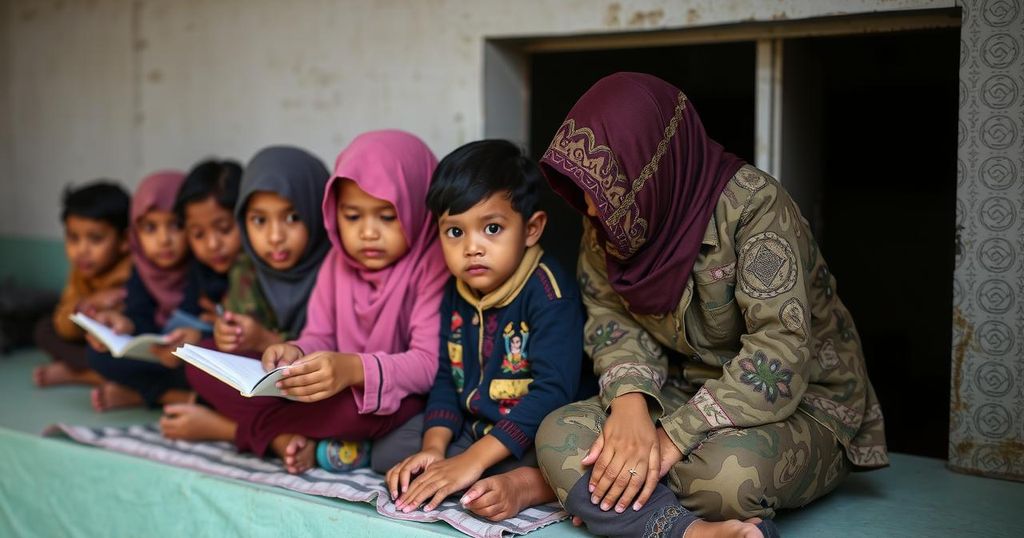Analysts advocate for Indonesia to repatriate about 400 citizens linked to the Islamic State in Syria to reintegrate them and prevent a return to militant activities. Following political changes in Syria and the urgent conditions in refugee camps, the National Counterterrorism Agency is reassessing its repatriation policies. Experts urge for tailored rehabilitation efforts and emphasize prioritizing children among repatriates.
Analysts contend that Indonesia must repatriate approximately 400 of its citizens linked to the Islamic State (IS) group currently residing in Syria, with the goal of deradicalizing them and preventing their return to militancy. Yanuardi Syukur, from the University of Indonesia, emphasizes the necessity for the Indonesian government to collaborate with the new leadership in Syria for this process. The dire conditions in refugee camps, such as al-Hol, highlight the urgency of this situation, as many individuals face exploitation and indoctrination.
In light of recent political changes in Syria following the downfall of President Bashar al-Assad, the National Counterterrorism Agency (BNPT) is reassessing its stance on repatriation. Under President Prabowo Subianto, the government is shifting its approach, moving from a previous policy of not repatriating IS-linked citizens to potentially allowing repatriation with an emphasis on assessing their security risks. BNPT authorities report that they are in the midst of identifying suitable candidates for repatriation and have set up rehabilitation centers to facilitate the reintegration process.
Despite the potential security risks involved, analysts warn that if these individuals remain in Syria, they may be recruited into ongoing conflicts. Haula Noor, a terrorism researcher, insists upon the urgency of repatriation, particularly confining efforts to low-risk individuals and families. Furthermore, legal ambiguities surrounding the citizenship status of children born in the conflict complicate repatriation efforts. Experts advocate for tailored rehabilitation strategies, with a possibility of partnerships with civil organizations to ensure successful reintegration into Indonesian society.
The Syrian conflict has had far-reaching implications since its onset in 2011, particularly regarding foreign fighters and their families. Following the defeat of the Islamic State in 2019, many nations, including Indonesia, face critical decisions about repatriating or prosecuting their citizens affiliated with IS. Indonesia, notable for its significant Muslim population, grapples with its historical challenges surrounding Islamist extremism and terrorism. The BNPT has reported a significant number of Indonesian nationals, including women and children, currently detained in refugee camps in Syria, facing dire humanitarian conditions.
In conclusion, the call for Indonesia to repatriate and deradicalize citizens linked to the Islamic State highlights a critical intersection of national security and humanitarian obligation. As Indonesia navigates the complexities of repatriation, it must balance the risks of returning militants against the potential consequences of inaction. Timely intervention and comprehensive rehabilitation strategies are essential to mitigate threats of recidivism and foster societal reintegration for returning individuals.
Original Source: www.benarnews.org






